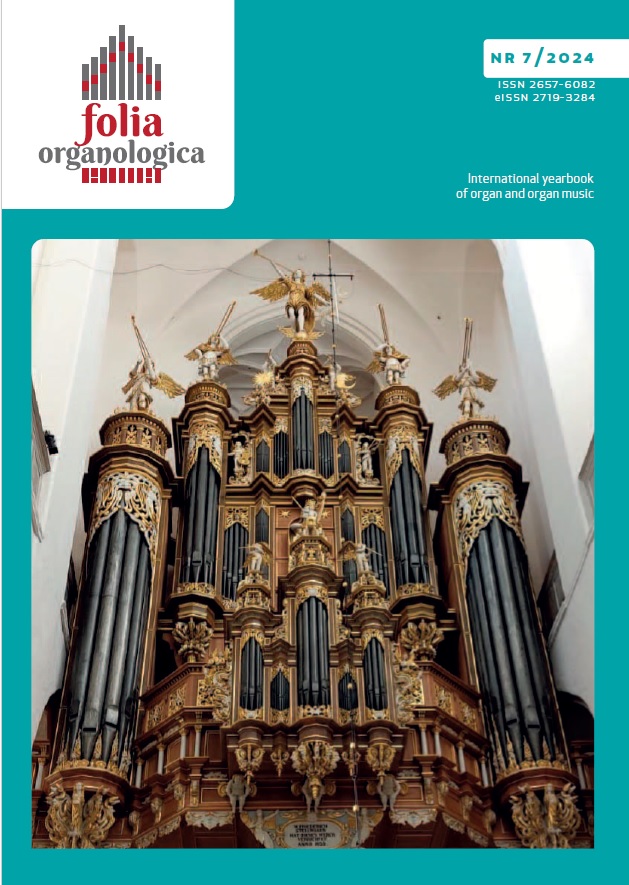
Finis coronat opus!
Grzegorz Poźniak (ed.), Firma organmistrzowska„Berschdorf” z Nysy. Arkana i pryncypia warsztatu.Series: Opoliensis Musica Ecclesiastica 13. Opole:SINDRUK-DIMK 2023, pp. 624, ISBN 978-83-967882.
More...We kindly inform you that, as long as the subject affiliation of our 300.000+ articles is in progress, you might get unsufficient or no results on your third level or second level search. In this case, please broaden your search criteria.

Grzegorz Poźniak (ed.), Firma organmistrzowska„Berschdorf” z Nysy. Arkana i pryncypia warsztatu.Series: Opoliensis Musica Ecclesiastica 13. Opole:SINDRUK-DIMK 2023, pp. 624, ISBN 978-83-967882.
More...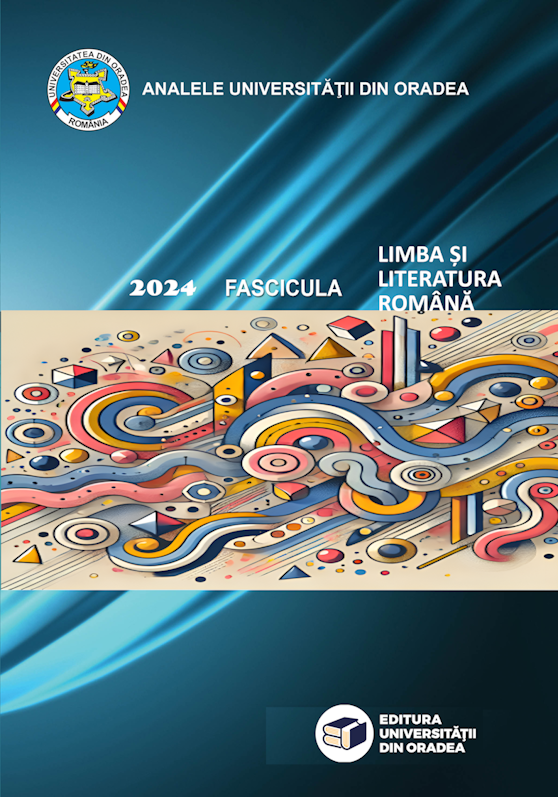
Unlike the geographical space which can be mapped, the literary space present in children's literature has some peculiarities. It is a space to be lived/experienced in its entirety and it cancels out some temporal dimensions present in other reality realms. In reality a space can be engulfed in memory and it can refer to future dimensions, as well. In children's literature the space becomes a parallel universe. For this, the space absorbs the reality instead of just making room for it. The space becomes a new reality, changing its course, as reflected in the book edited by Danielle Russell, “Containing Childhood. Space and Identity in Children's Literature”.
More...
The volume Scenarii ale criticii (”Scenarios of Criticism”) seeks to revive the critical vitality of Cluj’s academic sphere envisioned by its author, a vision grounded in present-day data and statistics, yet capable of projecting itself into a not-so-distant future. On another level, Călin Teutișan’s comparatist initiative also carries a sentimental dimension, reflecting his role as a cultural citizen of Cluj – an intellectual space that consistently generates new ideas, challenges canonical norms, and redefines critical methodologies and broader academic perspectives.
More...
”Presentation Zen: Simple Ideas on Presentation Design and Delivery” by Garr Reynolds (2020) provides a comprehensive framework for enhancing presentation design and delivery through principles rooted in simplicity, clarity, and visual storytelling. This book challenges traditional, text-heavy presentation norms by introducing a minimalist approach. This review explores how the principles of the books apply to the academic context, examining its relevance for lecturers, students, and researchers seeking to convey complex ideas effectively. In addition, it highlights key strategies, including the use of visual aids, storytelling techniques, and principles of design. It also discusses the potential challenges of adopting these methods in academia and offers a critical perspective on their implementation.
More...
A formidable theoretician of reading and promoter of literary and cultural hermeneutics, Gheorghe Manolache („Lucian Blaga“ University of Sibiu) is equally a prolific historian of literary ideas (see his seven volumes of studies undertaken by doctoral students from Romania, Hermeneutica fenomenului literar, under his coordination). A broader perspective reveals the professor’s preference for academic criticism—confident in the critique’s new meanings, synthesizing, and drawn to methodologies, principles, and complex conceptual resources. However, the arsenal of academic literary criticism finds in him the contribution of a unique methodology reflected in a set of principles that clearly define the physiognomy of research in the 21st century field of literature and innovation. In 2025, Gheorghe Manolache, a pillar of academic knowledge in Romania and a sage of literary research, reaches the beautiful age of 75. The figure of Proteus corresponds to the boundless field of themes approached with creativity by Professor G. Manolache. He is an eloquent observer of comparative postmodern phenomena and of their roots and metamorphoses.
More...
Iulian Boldea is a constant observer of contemporary literature and criticism, he takes into account the perspective on Romanian literature, memoirs and literary criticism as shaped by nowadays recent books. The volume by the literary critic based in Târgu Mureș is not a literary history, but a collection of very varied studies, organized by genre, which makes the book a practical description of the situation of Romanian literature after December 1989. The literary critic's ability to synthesize is impressive, but especially the close-reading exercise. The book reveals, in fact, the set of important readings that a reader of our century must have. Therefore, Iulian Boldea's volume is also a guide for the contemporary reader who needs a selection of value in the rich landscape of Romanian literary publications.
More...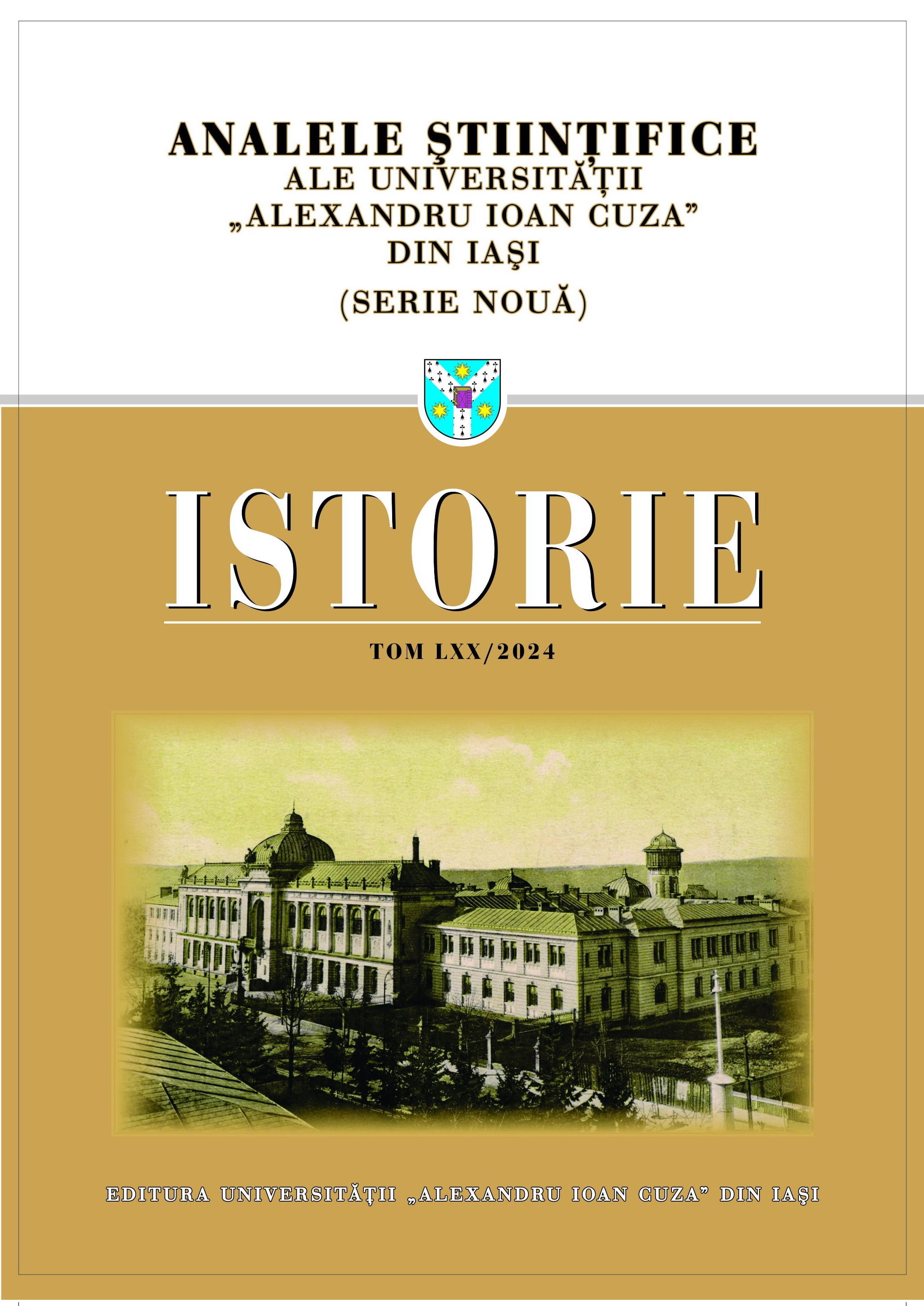
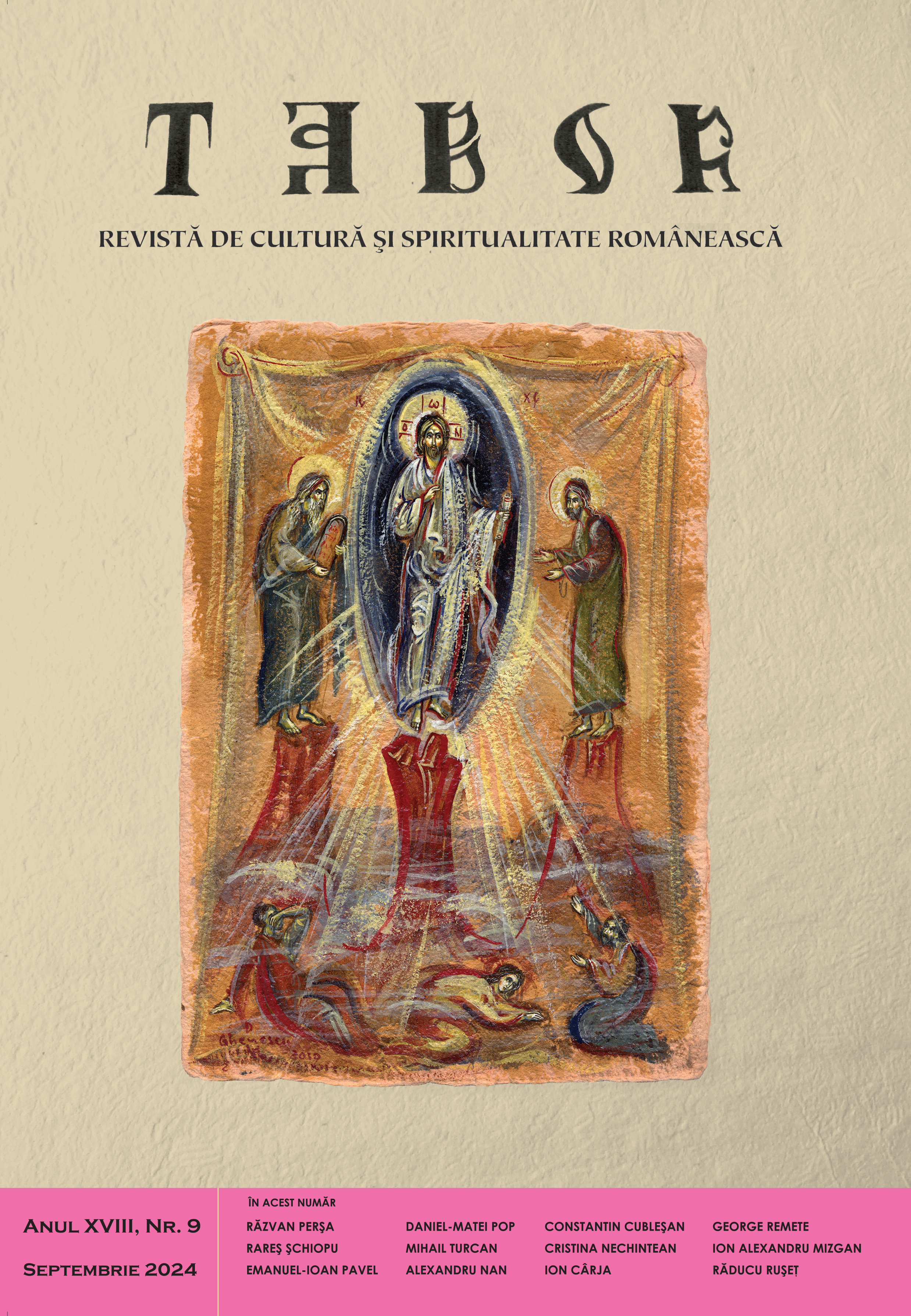
Book Review to EPISCOPUL IGNATIE TRIF, Sfântul Grigorie Palama şi teologia energiilor necreate, (Editura Spandugino, Bucureşti, 2022).
More...
Book Review to DAN CIACHIR, În lumea presei interbelice, Editura Lumea Credinţei, 2019, 114 pag.
More...
Book Review to MIRCEA OROS, Mistagogia Triodului, Cluj- Napoca, Casa Cărţii de Ştiinţă, 2024, 246 p.
More...
Book-Review to IOSIF STERCA ŞULUŢIU DE CĂRPINIŞ, Biografia lui Avram Iancu (1897), Coordonatori: Tiberiu Groza (Prefaţă) şi Vasile Şt. Tutula (Studiu introductiv), Ediţie facsimil, Editura Ecou Transilvan, Cluj-Napoca, 2024.
More...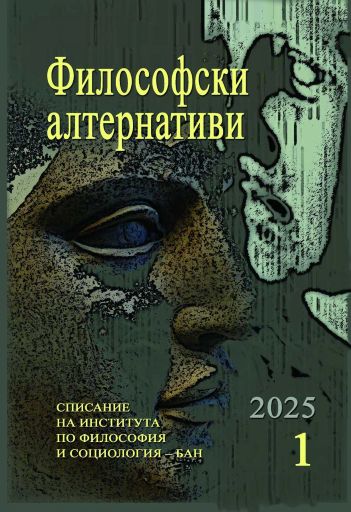
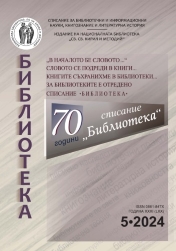



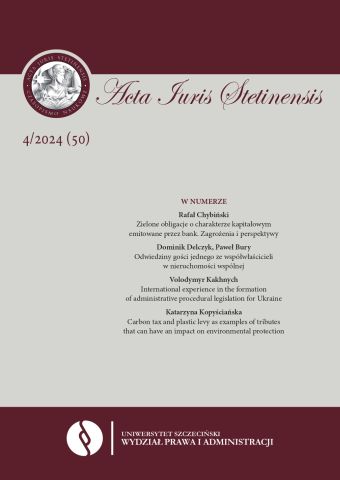
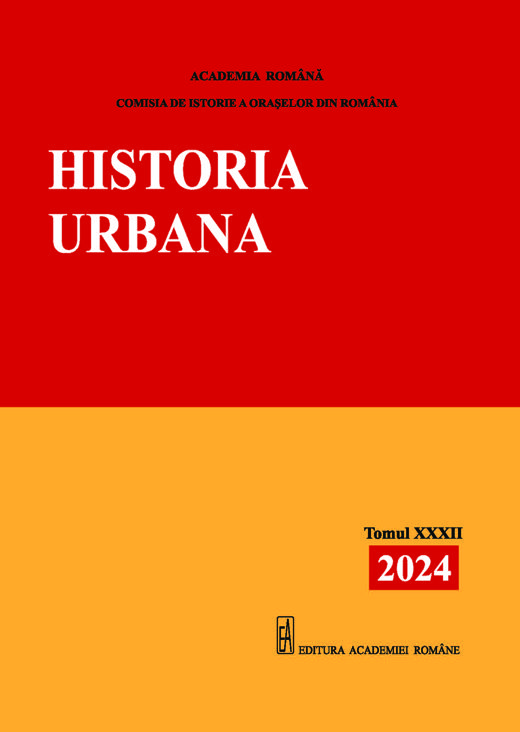
This article contains three reviews of national and international conferences focused on urban history.
More...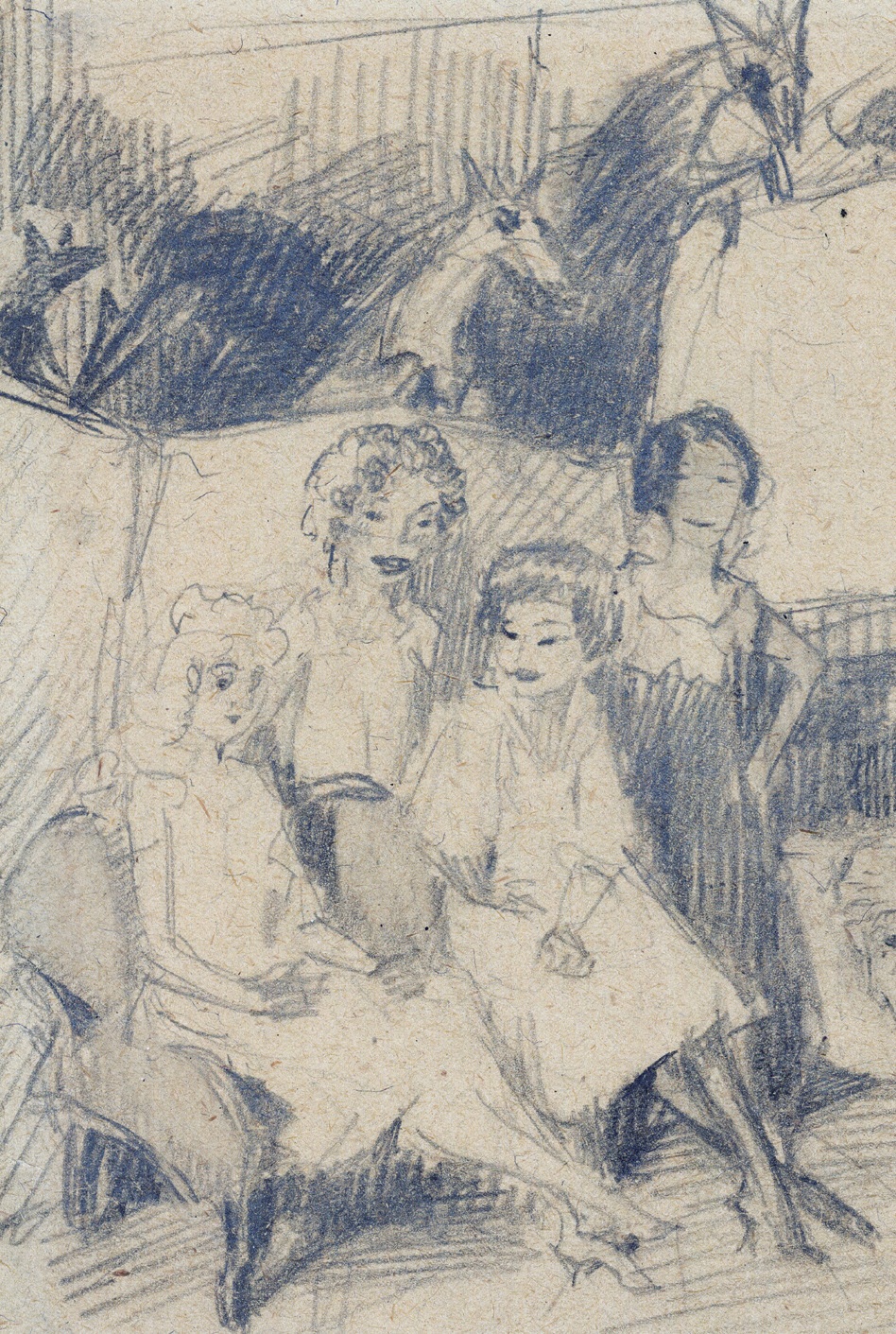
The characters in this story are Bruno Schulz and his high school friends. However, this is a story mediated through narratives created earlier. The biographies of the characters shape one another.In Tokarzewski’s biography, Schulz appears as a secondary character – yet one who ennobles and invites speculation. Without Schulz, the life stories of many characters might never have existed: Chajes, Pilpel, Konwicki, Ambros, Tatarski, Kupferberg, Sternbach, and Horowitz. The reception of others would have remained limited: Friedländer, Jawrower, Lachowicz, Weingart, and Aleksandrowicz. The biographical discourse surrounding Maczek rejects or ignores the narrative about Schulz. This likely reflects its strength, completeness, and independence. Schulz’s absence in non-Schulz-related biographical narratives usually stems from their brevity.As we observe, biographical discourse often falls into certain patterns: it perpetuates stereotypes and reinforces established frameworks. Just as human fates intersect by chance, so do biographical discourses too. Meetings are a matter of fate, and their documentation is another stroke of fortune.
More...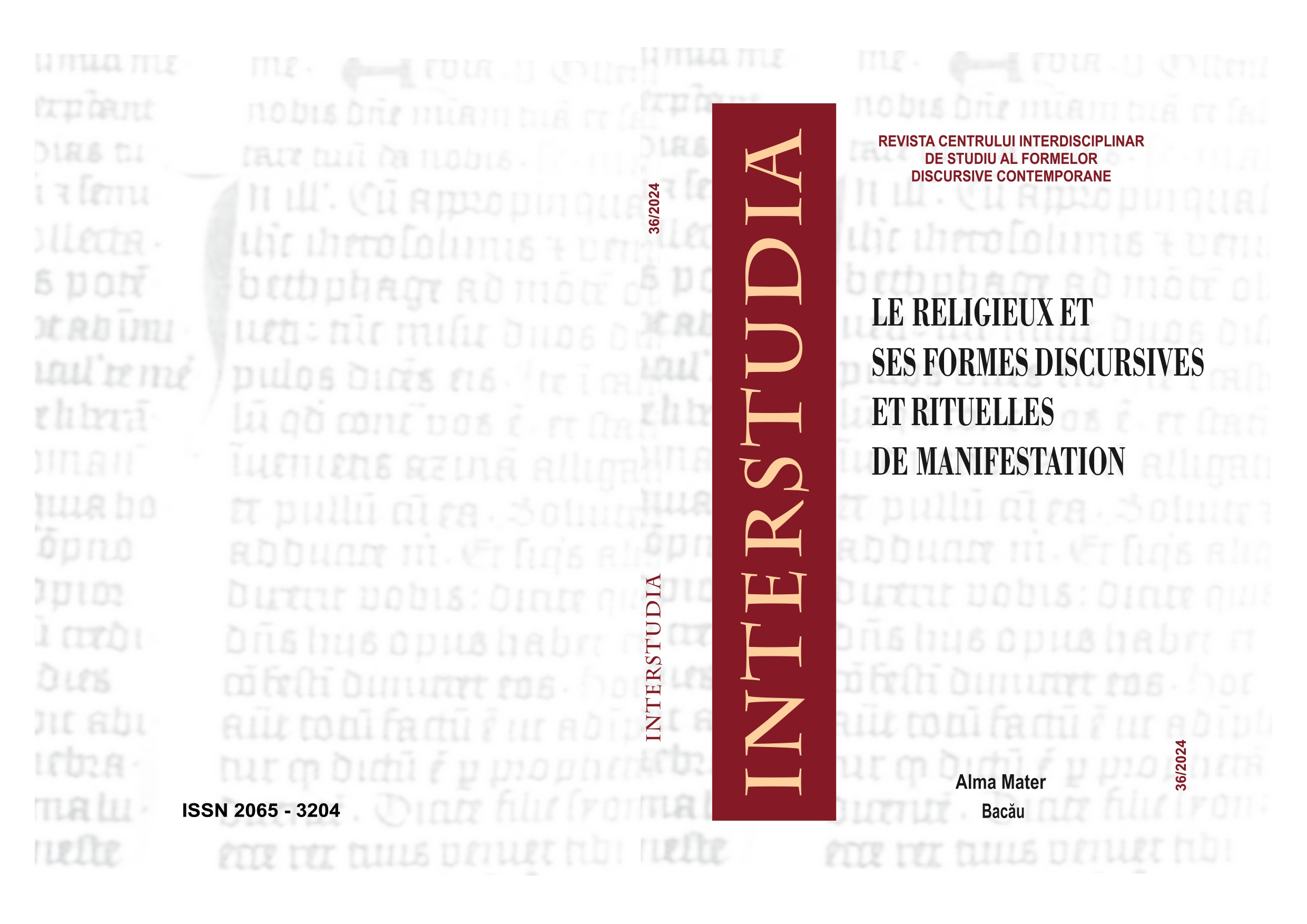
Book review. Felicia Dumas, Traduire le religieux en langue française : réflexions et analyses traductologiques, lexicographiques et terminologiques, Bucarest, Pro Universitaria, 2024, 219 p.
More...